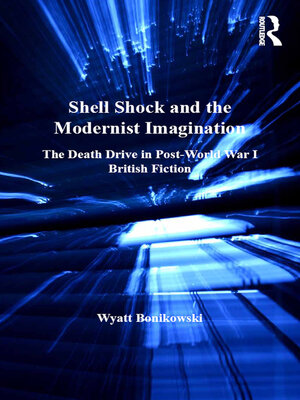Shell Shock and the Modernist Imagination
ebook ∣ The Death Drive in Post-World War I British Fiction
By Wyatt Bonikowski

Sign up to save your library
With an OverDrive account, you can save your favorite libraries for at-a-glance information about availability. Find out more about OverDrive accounts.
Find this title in Libby, the library reading app by OverDrive.



Search for a digital library with this title
Title found at these libraries:
| Library Name | Distance |
|---|---|
| Loading... |
Looking closely at both case histories of shell shock and Modernist novels by Ford Madox Ford, Rebecca West, and Virginia Woolf, Wyatt Bonikowski shows how the figure of the shell-shocked soldier and the symptoms of war trauma were transformed by the literary imagination. Situating his study with respect to Freud's concept of the death drive, Bonikowski reads the repetitive symptoms of shell-shocked soldiers as a resistance to representation and narrative. In making this resistance part of their narratives, Ford, West, and Woolf broaden our understanding of the traumatic effects of war, exploring the possibility of a connection between the trauma of war and the trauma of sexuality. Parade's End, The Return of the Soldier, and Mrs. Dalloway are all structured around the relationship between the soldier who returns from war and the women who receive him, but these novels offer no prospect for the healing effects of the union between men and women. Instead, the novels underscore the divisions within the home and the self, drawing on the traumatic effects of shell shock to explore the link between the public events of history and the intimate traumas of the relations between self and other.







